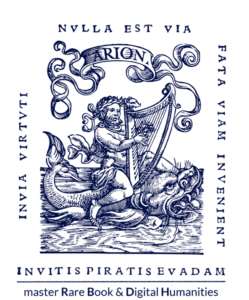“Neither history nor literature nor economics nor sociology nor bibliography can do justice to all the aspects of the life of a book. By its very nature, therefore, the history of books must be international in scale and interdisciplinary in method. But it need not lack conceptual coherence, because books belong to circuits of communication that operate in consistent patterns, however complex they may be. By unearthing those circuits, historians can show that books do not merely recount history; they make it.”
Robert Darnton, “What is the History of Books?”
I took the road by following the footsteps of the people who wrote and published books despite censors and prosecutors, in belief that books, not only published but also banned ones, make history.
I graduated from Istanbul University with a bachelor’s degree in Political Science and later on I did my master’s degree in the same field. Although political science underlies my academic formation, I have always been interested in interdisciplinary research, specifically a field that can be defined within the intersection of political science, comparative literature and history. Therefore the topic of my master’s thesis was the movement of “Turkish Humanism”, a period in Turkish cultural history which is characterized by the translation of Ancient Greek, Latin and European classical literature into Turkish.

Throughout my studies, I grew fond of old and rare books. The university campus in Beyazıt district was an environment where we were surrounded by the oldest libraries and largest archives of the country. The historical used book bazaar (Sahaflar Çarşısı), dating back to the 15th century, was nearby and the district of Cağaloğlu, where most of the publishing houses were located, was within the walking distance. Here I discovered that being among the bookshelves was as delightful as doing research. In the vibrant city of Istanbul, the libraries became the sanctuaries that I find peace and inner calm.

This was the habitus that the joy of reading evolved into an eager interest in “the book” itself. My research interests began circling around the book as the subject of historical and political research and when I wanted to develop an interdisciplinary approach, it evolved into a questioning of censorship and censored books, since the Ottoman/Turkish cultural history provides us with an opportunity to analyze censorship on books through various case studies.

Correspondingly, it became significant for me to study and implement the methods of digital humanities, in order to gain expertise in the conservation of printed materials. I took an interest in the field of digital humanities with a particular interest in applied methods on analyzing and preserving old and rare books, and I plan to apply this know-how in the context of my research interests. Following graduation, I plan to continue my studies as I specialize in book preservation and take part in the digitization projects in cultural and research institutions or libraries. Therefore I am happy and excited that I take part in the Master Program of Rare Books and Digital Humanities, theoretical and applied prospects of which will be of direct use in my future research work.
It was a long ancient Roman pathway that led me from Byzantion to Besançon, but I believe that the distance between bibliophiles is not as long as we assume. In a group of international students from all around the world, I am thrilled by the opportunity to learn something new from each one of us. This is a stimulating voyage into the world of books and knowledge. Along the way, I am looking forward to see, explore, and experience as much as I can.


